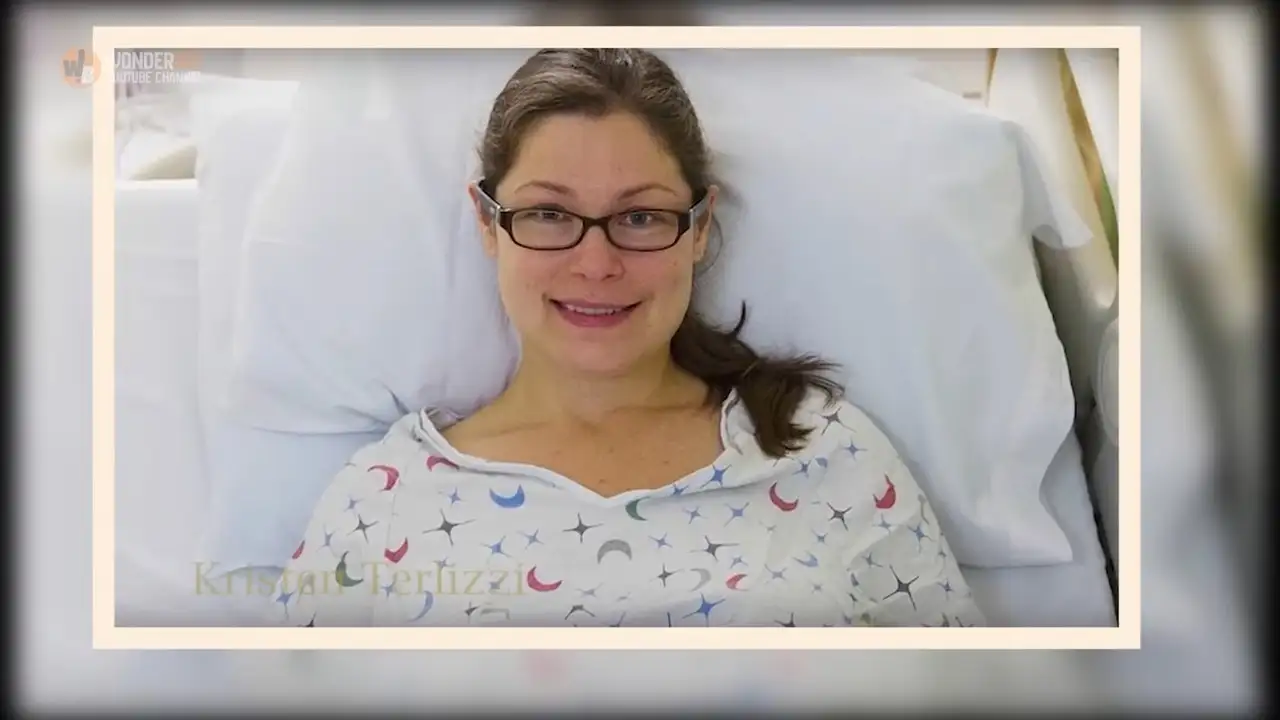This mom gave birth to a healthy baby, but when doctors saw her placenta, they left it inside her. When one mom gave birth to a healthy baby boy, she couldn’t have been happier. However, her joy soon turned to despair when doctors saw her placenta. It was in such a state, in fact, that the medical team made the bold move to leave it inside her.
That mom was Kirsten Turlitzi, who lives in Los Gatos in California. She resides there with her husband Jeff, whom she married in October 2010. Four years after their wedding, the couple received some good news — namely, that they were expecting their second baby together.
At first, Turlitzi’s pregnancy went smoothly. At the beginning of her third trimester, however, the situation became substantially more perilous. Around 28 weeks into pregnancy, her ultrasound images started looking suspicious. They could not see a separation between her placenta, her uterus, and her bladder.
Turlitzi was subsequently diagnosed with placenta percreta, a more severe form of placenta accreta, and the condition could have devastating consequences for her. Placenta percreta can cause the placenta to go completely through the uterine wall, out to the other side, and invade nearby organs.
During a regular pregnancy, the placenta grows within the uterus, connects to the uterine wall, and is flushed out after a woman gives birth. However, if the mom has placenta accreta, the condition causes the placenta to grow rapidly and uncontrollably, bending into the uterine wall. This requires doctors to manually detach it after birth, often leading to hemorrhaging.
Sixty years ago, cases of accreta were extremely uncommon. In the 1950s, just one in every thirty thousand births in the United States was affected by the condition. Today, it is much less rare, occurring in one in 500 deliveries in the U.S. One reason for this is the prevalence of cesarean sections. Women who have had C-sections often have scars on their uterus, and the new placenta can bond deeply to the scar tissue, resulting in accreta.
Turlitzi herself had given birth to her first son via Caesarean section. Moreover, the hemorrhaging caused by accreta can be deadly. In the United States, one in every 14 women with accreta will die. So, needless to say, Turlitzi’s diagnosis was terrifying for her.
Given the seriousness of her condition, Turlitzi had to give birth at 33 weeks. In July 2014, a team of 30 medical professionals at Stanford Hospital helped deliver her second son, Leo. Thankfully, the little baby was perfectly healthy.
It was only after Turlitzi had given birth that doctors then made a horrifying discovery. On July 16, 2014, at 33 weeks pregnant, she was brought into the main Stanford OR with a team of 30 multi-disciplinary surgeons and nurses, and they safely delivered her son Leo. He did great. However, when it came time to assess the placenta, the invasion was much worse than expected.
Turlitzi’s placenta had grown far beyond any comprehension. As the surgeons examined the scale of the tissue’s expansion, they pondered how they were ever going to get it out without serious damage to the new mom. In the end, though, they made a seemingly unlikely decision. They decided to leave Turlitzi’s placenta inside her.
Turlitzi revealed, « They stopped and closed me up with the entire placenta untouched still inside my body. They were worried I would get an infection, that I would start spontaneously hemorrhaging. But there was also this thought that maybe the body would start to reabsorb the placenta. »
In an unprecedented move, they decided to abort the mission on the surgery. « Maybe this will actually work out on its own; we just really didn’t know, » Turlitzi said. For all intents and purposes, Turlitzi was pretty much a medical experiment. « I felt like a time bomb waiting to explode, » she admitted.
To make matters worse, after three days, the mom still hadn’t met her precious little baby. « I was in ICU for three days, and when I got transferred from ICU to F3, they must have done some serious behind-the-scenes coordination. » As a result, her doctors pulled some strings and arranged a special midnight visit.
Looking back on the special occasion, Turlitzi admitted that it gave her a massive morale boost. « I had something that I needed to get better for and to get back to, » she explained. « The empathy of my team and their ability to see that bigger picture and to just make something happen to give me a much-needed morale boost. I had something that I needed to get better for and to get back to. »
But things got worse before they got better. After six weeks in the hospital, bruises began to appear all over Turlitzi’s body. The signs naturally weren’t good, and a scan later revealed something alarming — Turlitzi was in fact approaching serious liver failure.
« I stayed in the hospital for six weeks, and then one day, I started developing bruises all over. A blood test revealed that I was approaching liver failure. » It was then that surgeons decided to operate. In an epic eight-hour procedure, they removed her placenta and some unnecessary organs and repaired the damage to other critical ones.
During this time, Turlitzi needed 26 units of blood to stabilize her. « When Leo was seven weeks old, I underwent an emergency operation lasting eight hours. It would take the removal of some unnecessary organs, repairs, and interventions to other critical ones and the transfusion of 26 units of blood products to stabilize me. »
For a while, it was touch and go whether the mom of two would make it. Happily, however, she went on to make a full recovery. Now she’s forever thankful for the expert care those at Stanford Healthcare gave her and her baby. « I knew that I was at the right place. They were going to do everything that they could possibly do. You never even know that Leo was a preemie. »
The proud mom gushes, « He’s a feisty and determined one-year-old, and we’re pretty convinced that my mutant placenta gave him some X-Men powers. » Thankfully, then, Turlitzi can continue with her life and enjoy every moment spent with her family. As a way of displaying her gratitude, she now volunteers at Stanford Hospital.
« I’ve become a volunteer at Stanford and have learned what CI care is. As soon as I read about it, I had this like, ‘Oh, that’s the magic. They actually have this spelled out in how to do it because they’re definitely achieving it and achieving it in a genuine way. » And thanks to our doctors’ expertise, she’ll now get to see her children grow up.





